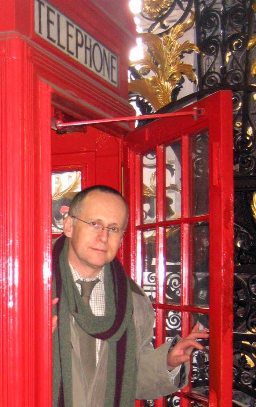
It’s not just scientists who are guilty of it, or who fret about it (and then do nothing). All academics have the same problem. They write abysmally, and it’s getting worse, says Ted Nield.
Geoscientist 20.09, September 2010
The time is long past when a professor might turn out a quick guide, like Trevelyan’s English Social History or Trueman’s Geology and Scenery in England and Wales, that could actually be read for the elegance of its English. The combined effect of impoverished early education (kids just don’t study their Tacitus, Gibbon, Voltaire like they used to) and of peer review and academic metrics later in life, conspire to make modern academic writing the stygian slough that it has become, and to de-skill its practitioners to an extent that they cannot even recognise, let alone break, their bad habits.
A few science communicators and journalists can help, Charon-like, to ferry those from the wider community with a desire to cross the morass. But change needs to come from within. Current constraints upon the academy are partly to blame, by positively encouraging academics to write only for each other, in their special codes. The new “Research Excellence Framework” will therefore try to “re-incentivise” communication with, and influence upon, “end users”. Alas, it will also preserve intact all the stultifying opposite tensions imposed by the old RAE; and I have a nasty feeling that such proximal demands will outstrip all others, no matter what the framework.
By now, you may be expecting a hand-wringing conclusion about communication with the public; but I have done enough of that for one lifetime and in any case the problem is more immediate than that. Earth science is a broad and broadening church. Our subject has enriched itself by attracting scientists from other root disciplines, with their own peculiar dialects of “science-speak”. This magazine, received by all the Society’s (very nearly) 10,000 members, plays a crucial role in not only making Earth scientists acquainted with each other (to paraphrase a Society founding document) but in helping them understand each other’s special subjects too, by using language that all can follow. Now that our readership includes Friends of the Society, this need has never been greater.
Our regular monthly Features are volunteered by Fellows of the Society, and provide our readership with, we hope, accessible introductions to perhaps unfamiliar subject areas. However they also provide an opportunity for their authors to experience a different style of writing, for a wider audience.
So – when you read
this month’s Feature, on fossil reptile tracks by Howard Falcon-Lang, ask yourself this – could I do this for my subject in 2500 words that every Fellow and Friend of this Society would understand and enjoy? If you are willing to try, we are here to help.
- If you have an idea for a Feature article, please contact the Editor by email at [email protected]. Before doing so, read our handy guide to writing features, which tells you all the basics about length, references and illustrations etc., at www.geolsoc.org.uk/geoscientistauthor.